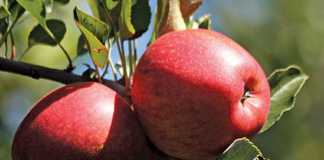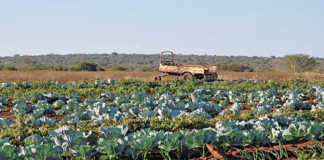
Photo: FW Archive
Not only is a record crop predicted for this season’s wheat harvest, but wheat prices have also achieved record highs.
According to the Crop Estimates Committee, the expected wheat harvest was 2,1 million tons, the largest harvest in 19 years.
Amid the COVID-19 pandemic, local wheat prices also increased to an average record high of US$300/t (R5 500/t). However, Ruan Schutte, agricultural economist at Grain SA, cautioned farmers not to count their breads before they had baked, as there were still some economic and climatic factors that could change the outlook.
“There is still a lot of grain that needs to be harvested, and a lot can happen before the season is finished.”
He pointed out that due to rain in the Southern Cape region during harvest time, many grading problems could arise, while wind damage could also cause yield losses.
The high wheat price was, however, boding well for wheat farmers, as it would assist in improving the financial position of farmers after years of drought that resulted in dwindling and failing crops.
“But the damage done during the drought is going to take more than just one good year like this to get cash flow to where it was before the drought,” said Schutte.
He added that there was a negative correlation between yield and protein content.
“Usually, when the yield is higher, the protein content of the wheat is lower. This means that producers are more likely to deliver B2 and B3 ratings in a year like this, rather than BS and B1 ratings like the previous year. This also holds a financial implication for producers.”
GLOBAL PRICE FACTORS
Schutte explained that drought conditions in South America, Russia and the EU, as well as production conditions in the US, Canada and Australia, had affected international wheat prices.
“The value of the dollar also affects prices, because we have to import [wheat]. The sentiment on the markets due to [the pandemic] also had a huge impact on currencies and the supply and demand in some countries. Earlier this year, when Russia and Ukraine imposed restrictions on exports, there were significant price movements.”
Schutte said he could not predict what wheat prices would do in the year ahead, as there were too many variables at play.
“At the moment, things are looking good, but it could change at any time, due to the uncertainty on the international markets and the sentiment that prevails due to COVID-19.”
Looking towards the future, Schutte said he believed that the biggest challenge for the wheat industry was the uncertainty about sufficient and timeous rainfall.
“Weather conditions have the biggest impact on agriculture, and that’s the factor that producers have the least control over. There are always other challenges, too, but [they are] manageable.”
Johannes Joubert, a wheat farmer near Riversdale, concurred with Schutte, but added that the soil moisture levels were currently much better than previous years due to good, late rainfall.
“We will strictly apply moisture conservation practices to preserve soil moisture, as our winter rain is somewhat lighter than the western parts of the province.”
He added that higher fertiliser and chemical prices would also “eat into next year’s profits”.
“It is still unclear by how much these prices will increase, but that [these products] will become more expensive is a given.”












